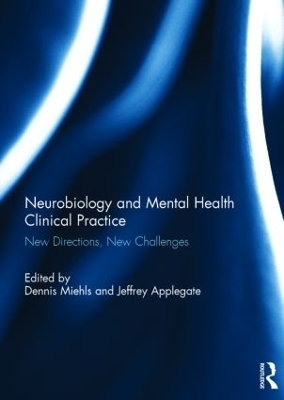
Neurobiology and Mental Health Clinical Practice
Routledge (Verlag)
978-1-138-86075-9 (ISBN)
Representing the fields of social work, psychology and psychiatry, these authors creatively apply research findings from the ongoing revolution in social and behaviour neuroscience to a diverse array of clinical issues. Contributions include elaborations of theory (the evolving social brain; new directions in attachment, affect regulation and trauma studies); practice (neurobiologically informed work with children, adults, couples and in the conduct of supervision); and emerging neuroscientific perspectives on broader mental health issues and concerns (substance abuse; psychotropic medications; secondary traumatic stress in clinicians; the neurodynamics of racial prejudice; the dangers of forfeiting humanism to our current romance with the biological). Together, these chapters equip readers with state-of-the-art knowledge of the manner in which new understandings of the brain inform and shape today’s professional efforts to heal the troubled mind.
This book was originally published as a special issue of Smith College Studies in Social Work.
Dennis Miehls is a Professor at Smith College School for Social Work, Northampton, Massachusetts, USA. He is chair of the Human Behaviour Sequence of the School. He has published extensively in the areas of trauma, couple therapy, neurobiology, and supervision. He maintains a private psychotherapy practice in Northampton, Massachusetts, USA. Jeffrey Applegate is Professor Emeritus, the Graduate School of Social Work and Social Research, Bryn Mawr College, Pennsylvania, USA. Currently he is Adjunct Professor at the School of Social Policy and Practice, University of Pennsylvania, USA. His scholarly work focuses on the application of psychoanalytic theory to social work research, practice and education.
1. Introduction to Neurobiology and Clinical Work 2. Why we Need Therapy – and Why it Works: A Neuroscientific Perspective 3. Regulation Theory and Affect Regulation Psychotherapy: A Clinical Primer 4. Selected Neurobiological Arousal Issues as Manifested in a Clinical Case Illustration 5. The Interpersonal Neurobiology of Clinical Intuition 6. Working Implicitly in Couples Therapy: Improving Right Hemisphere Affect-Regulating Capabilities 7. Interface between Psychotropic Medications, Neurobiology, and Mental Illness 8. The Neurobiology of Substance Use Disorders: Information for Assessment and Clinical Treatment 9. Trauma’s Neurobiological Toll: Implications for Clinical Work with Children 10. Resonance in the Dissociative Field: Examining the Therapist’s Internal Experience when a Patient Dissociates in Session 11. Beneath the Surface: An Exploration of Neurobiological Alterations in Therapists Working With Trauma 12. Casting Light on the Shadow: Clinical Implications of Contextualizing Racial Experience Within a Neurobiological Framework 13. Neuroscience Insights that Inform Clinical Supervision 14. Biomania: Benefits, Risks, and Challenges
| Verlagsort | London |
|---|---|
| Sprache | englisch |
| Maße | 174 x 246 mm |
| Gewicht | 612 g |
| Themenwelt | Geisteswissenschaften ► Psychologie ► Biopsychologie / Neurowissenschaften |
| Geisteswissenschaften ► Psychologie ► Klinische Psychologie | |
| Medizin / Pharmazie ► Medizinische Fachgebiete ► Notfallmedizin | |
| Medizin / Pharmazie ► Medizinische Fachgebiete ► Psychiatrie / Psychotherapie | |
| Sozialwissenschaften ► Pädagogik ► Sozialpädagogik | |
| Sozialwissenschaften ► Soziologie | |
| ISBN-10 | 1-138-86075-1 / 1138860751 |
| ISBN-13 | 978-1-138-86075-9 / 9781138860759 |
| Zustand | Neuware |
| Haben Sie eine Frage zum Produkt? |
aus dem Bereich


